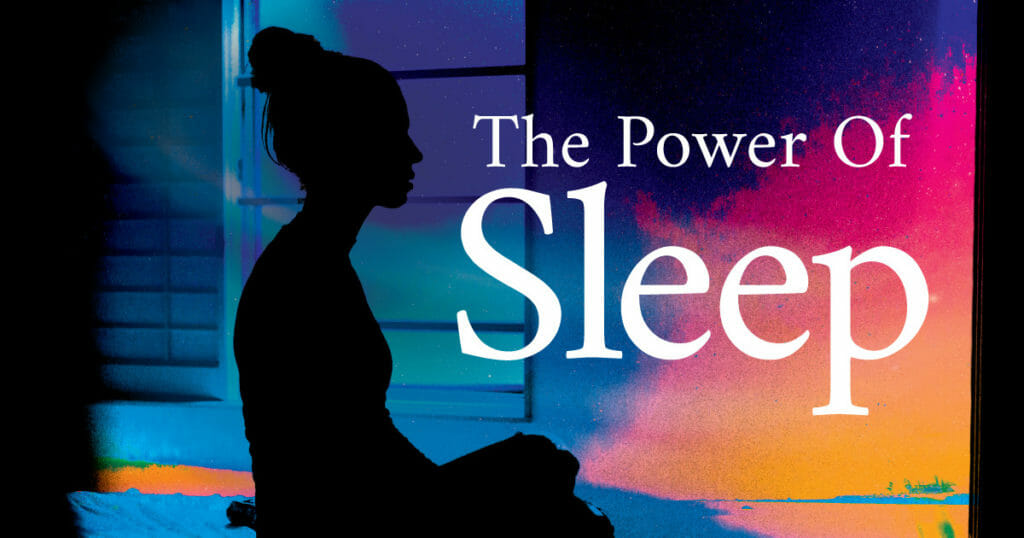
The Power of Sleep
77% of American adults haven’t been sleeping as well since the start of the COVID-19 pandemic
The Scourge Of Sleeplessness
We spend one-third of our lives either sleeping or attempting to sleep
- Who Is Getting Enough Sleep?
- Before the pandemic, most Americans were getting enough sleep
- 65% Employed
- 60% Unemployed
- 51% Those Unable to Work
- With the unemployment at an all time high, and the added stress of a pandemic, sleep problems are more rampant than ever before
- How will Americans use their extra time at home?
- 11% getting more sleep
- 37% watching Netflix
- 32% exercising
- 20% playing video games
- How will Americans use their extra time at home?
- Before the pandemic, most Americans were getting enough sleep
At least 6 of the 10 leading causes of death* have been linked to lack of sleep
Sleep & Immunity
- What Is Immunity?
- Active Immunity: Exposing the body to an antigen to generate a long term adaptive immune response
- Created by vaccination or recovering from infection with diseases such as chicken pox
- Passive Immunity: Providing antibodies from another source to provide immediate, short term protection
- Transferring antibodies from mother to infant or through plasma from recovered patients
- Active Immunity: Exposing the body to an antigen to generate a long term adaptive immune response
Before COVID-19, the 4 coronaviruses known to cause common cold granted recovered patients only passive immunity, lasting a few months or years — Likely the reason people get colds so often
- Innate Immunity: The body’s ability to defend against pathogens, even without active or passive immunity
- Include natural defenses like coughing, tears, skin, hair, mucus, and stomach acid
- How Does Sleep Impact Immunity?
- Cytokines: Proteins produced and released during sleep that regulate both innate and adaptive immune systems
- Lack of sleep reduces the immune responses that target infection and inflammation
- White Blood Cells: A group of blood cells that fight infection, control immune response, and create antibodies
- During sleep, white blood cells accumulate and fight off antigens trapped by lymphatic tissues
- Cortisol: Known as “the stress hormone”, reduces inflammatory response and triggers lower cytokine production
- By acting as an anti-inflammatory, cortisol may improve immune function in short bursts — But chronically high-stress has the opposite effect
- Cytokines: Proteins produced and released during sleep that regulate both innate and adaptive immune systems
- The Sleep/Stress Cycle
- Cortisol and melatonin regulate sleep/wake cycles
- Morning:
- High cortisol levels
- Low melatonin levels
- Higher blood pressure
- Lower inflammation
- Feeling awake and alert
- Evening:
- Low cortisol levels
- High melatonin levels
- Lower blood pressure
- Higher immune response
- Feeling tired and drowsy
- Morning:
- Too much stress raises cortisol levels, leading to
- Sleep problems and fatigue
- Issues with memory and focus
- Poor immune function
- Cortisol and melatonin regulate sleep/wake cycles
In 2020, Americans will spend $52 billion on sleep aids and remedies — up from $41 billion in 2015
How To Get Better Sleep
- Tips For Healthy Sleep
- Be Consistent:
- Stick to a sleep schedule, even on weekends
- Create a calming bedtime routine
- Avoid evening snacks and caffeine after noon
- Manage Light:
- Eliminate as much light as possible in your bedroom
- Avoid screens for at least 1 hour before bed
- Use bright morning light to feel more awake and alert
- Make It Comfy:
- Keep your bedroom cool — Ideally between 60 and 67℉
- Eliminate distracting noises with ear plugs or white noise
- Ensure your mattress and pillows are supportive and allergen free
- Be Consistent:
- Still Can’t Sleep?
- Beware Of Naps: Napping may help you feel more rested during the day, but can make it harder to sleep at night
- Watch Your Intake: Substances like caffeine, alcohol, nicotine, and even spicy foods can interfere with sleep
- Do Something Else: If you can’t fall asleep, go into another room and do something relaxing, then try again
Talk To A Doctor about any ongoing sleep problems
- Sleep & COVID-19
- 70% of American adults think lack of sleep increases their susceptibility to COVID-19
- 48% say anxiety about the pandemic has led to trouble sleeping
- Since the start of the pandemic, people around the world are reporting more vivid, odd, or memorable dreams
- Research has shown
- High stress and anxiety increases negative content in dreams
- Dreams following traumatic events may be more intense and memorable
- Social isolation leads to more dreams featuring friends and family
- While dreams don’t affect the quality of your sleep it can be hard to fall asleep after waking from a nightmare — and bad dreams can have a “hangover” effect that carries into your next day
- Research has shown
- What habits help you sleep better?
- Avoiding news about COVID-19: 46%
- Spending evenings reading: 40%
- Taking sleep supplements: 27%
- Practicing meditation or yoga: 21%
- 23% of Americans say stay-at-home has eroded their sleep schedule
- 58% sleep more
- 19% sleep less
- 70% of American adults think lack of sleep increases their susceptibility to COVID-19
- How Much Sleep Is Enough?
- “You need as much sleep as it takes for you to stay awake and alert the next day, without caffeine” — Dr. Nathaniel Watson, President of the American Academy of Sleep Medicine
- For most people, that’s at least 7 hours of sleep each night
Sleep better, stay healthier. — When’s the last time you got a good night’s rest?

Sources:
https://www.researchgate.net/publication/262060840
https://www.cdc.gov/media/releases/2016/p0215-enough-sleep.html
https://www.ncbi.nlm.nih.gov/pmc/articles/PMC5627640
https://www.nih.gov/news-events/nih-research-matters/sleep-deprivation-increases-alzheimers-protein
https://www.psychologytoday.com/us/blog/sleep-newzzz/201812/how-poor-sleep-can-affect-suicide-risks
https://academic.oup.com/occmed/article/57/8/552/1474357
https://www.smithsonianmag.com/science-nature/can-you-become-immune-sars-cov-2-180974532
https://medlineplus.gov/ency/article/000821.htm
https://www.sleepfoundation.org/articles/how-sleep-affects-your-immunity
https://www.onlinelibrary.wiley.com/doi/full/10.1046/j.1365-2796.2003.01195.x?sid=nlm%3Apubmed
https://www.britannica.com/science/lymph-node
https://www.assaygenie.com/blog/cortisol-and-the-immune-response
https://www.consumerreports.org/sleep/why-americans-cant-sleep
https://www.sleepfoundation.org/articles/healthy-sleep-tips
https://time.com/5821896/coronavirus-nightmares-dreams
https://www.sleepfoundation.org/articles/do-dreams-affect-how-well-you-sleep
https://health.clevelandclinic.org/what-happens-when-your-immune-system-gets-stressed-out/
https://thesleepdoctor.com/2020/03/24/cortisol-and-its-effects-on-your-sleep/